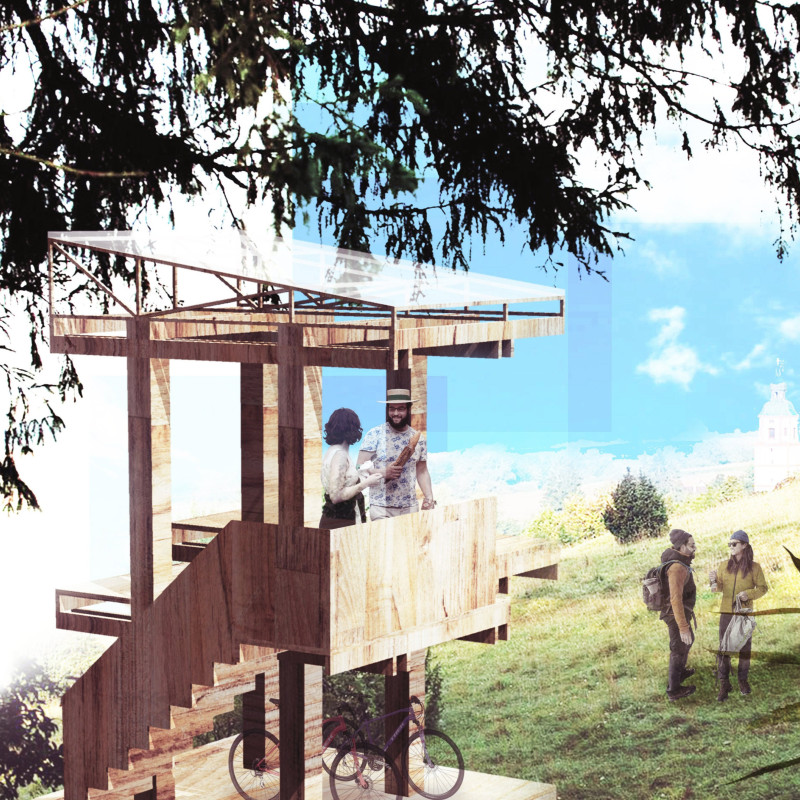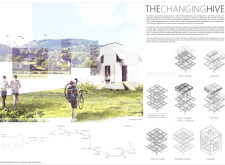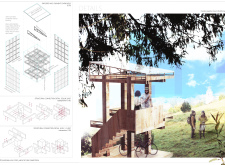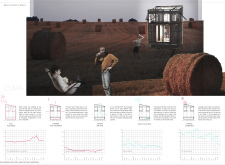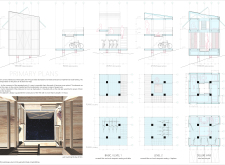5 key facts about this project
The Changing Hive is a modular and adaptable rest stop designed for cyclists, situated within a natural setting. The overall design emphasizes flexibility, allowing users to adjust the structure according to their needs and the environment. It promotes engagement with the outdoors while providing essential amenities in a compact format.
Structural Framework
The foundation of The Changing Hive consists of four wooden pillars that offer stability and facilitate various configurations. These pillars allow the structure to adjust to different landscapes, making it versatile and functional in various contexts. The layers of the design can be overlapped or removed based on user requirements, ensuring that each visit can be tailored.
Material Selection
The secondary frame is made from assembled wood and features interior finishes that incorporate recycled surfaces. This choice of materials enhances the warm and inviting atmosphere of the space while supporting ecological values. A polycarbonate rooftop adds to the design by allowing natural light to brighten the interior, creating a lively environment for users.
Functionality
In its basic form, The Changing Hive includes essential features like covered bike racks, a table, and seating crafted from recycled or plywood materials. As a deluxe version, the space expands its offerings to include a kitchenette, shower cubicle, and WC. The lower level comprises communal areas, while the upper floor houses insulated private sleeping capsules, effectively utilizing the available space.
Climate Adaptability
The design addresses climate considerations, allowing the structure to function as a hothouse during colder months by retaining heat. Meanwhile, its lightweight design promotes ventilation in warmer weather, enhancing overall comfort for users throughout the year.
At night, the exterior glows softly, turning the Hive into a beacon that lights up the surrounding area and guides cyclists who seek a moment of rest.


